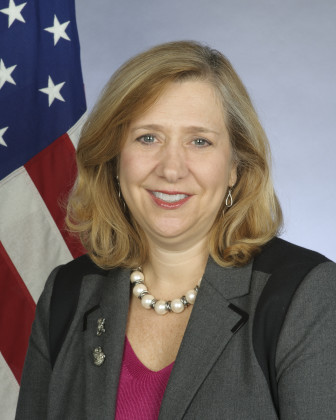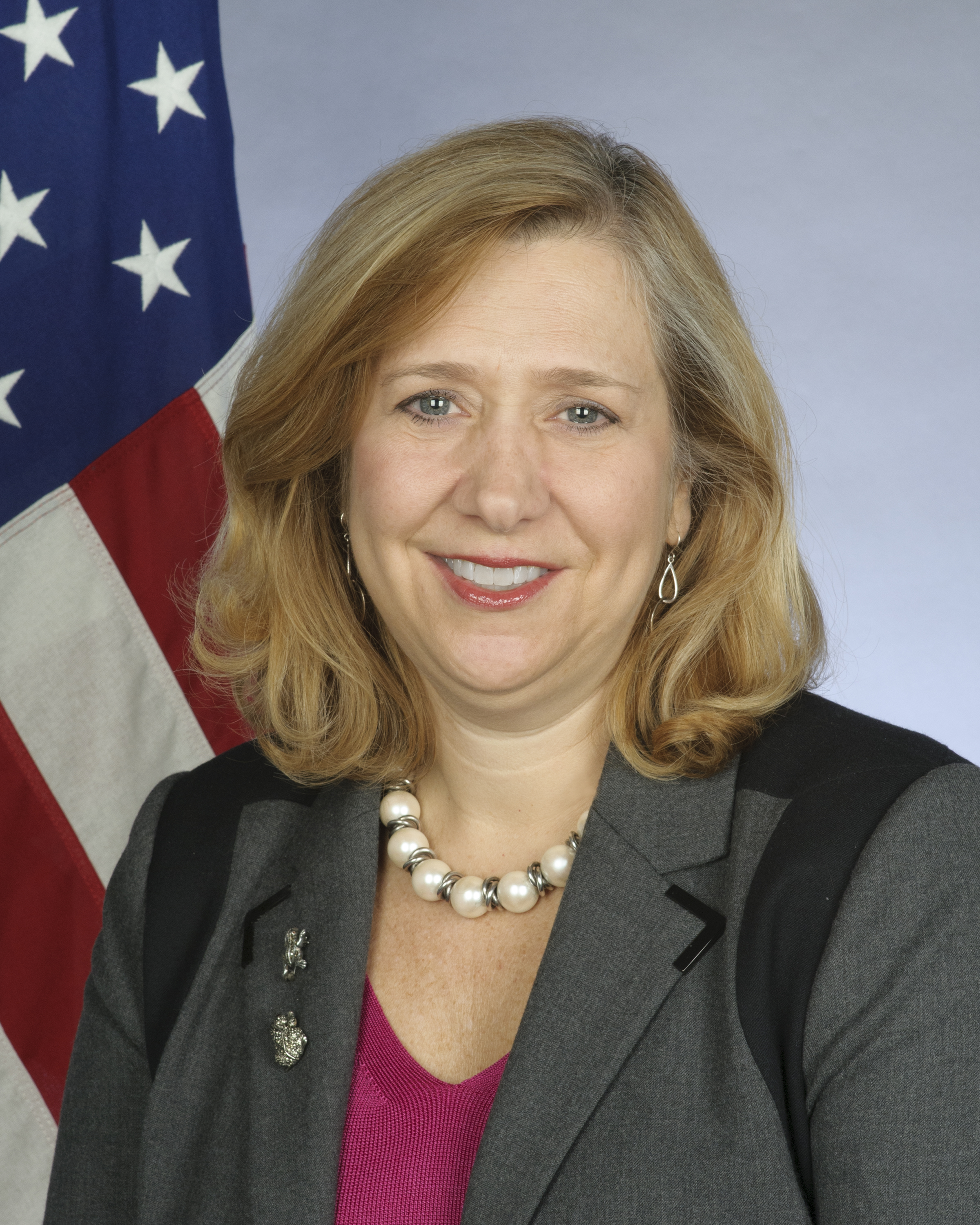 Susan Coppedge was recently confirmed as the new director of the Office to Monitor and Combat Trafficking in Persons in the U.S. Department of State, with the rank of ambassador-at-large. The State Department, in addition to country ambassadors, has several ambassadors-at-large who deal with specific issues, including counterterrorism and global women’s issues.
Susan Coppedge was recently confirmed as the new director of the Office to Monitor and Combat Trafficking in Persons in the U.S. Department of State, with the rank of ambassador-at-large. The State Department, in addition to country ambassadors, has several ambassadors-at-large who deal with specific issues, including counterterrorism and global women’s issues.
Coppedge has served as assistant U.S. attorney for the Northern District of Georgia since 2001, and for the last six years has served as the office’s human trafficking coordinator.
Coppedge talked with Youth Today reporter Stell Simonton.
Youth Today: When we talk about trafficking in relation to kids, what do we mean?
Susan Coppedge: We’re talking about anyone below the age of 18 who is compelled [through manipulation or threats, for example] to work either in commercial sex acts or in jobs. …If you’re compelled to do it, that’s trafficking.
Or someone over the age of 18 who is compelled by force, fraud or coercion.
YT: Among people younger than 18, what are the biggest problems when we’re talking about trafficking? Is it commercial sex exploitation or other kinds of trafficking?
Coppedge: It is predominantly commercial sex exploitation, particularly for American youth. It happens frequently that it starts off as what the intended victim thinks is going to be a romance — someone that’s going to look out for them, who’s going to take care of them — and it never is that. It’s an older person. Typically it’s that they are romancing them under false pretenses to put them into trafficking.
[The numbers are difficult to document but nearly 300,000 youth are at risk in the United States for commercial sex exploitation, according to the FBI.]YT: I understand that the majority of young people affected or girls, but is it a problem for boys also?
Coppedge: It is a problem for boys, and increasingly it’s a problem for transgender and gay individuals.
YT: What plans does your office have to combat this? What programs are already in place or what new things are you planning?
[Related: Campaign Calls for Hotels to Stand up Against Child Trafficking]
Coppedge: The office has 45 individuals on staff and they spend the entire year looking at 188 countries to see what they’re doing to combat sex trafficking … They look at those countries to see what laws they have in place and if they’re strong enough and what protection rights they have in place, what services they have for victims. They also look at what preventative measures they’re taking. Every year the State Department, through the Trafficking in Persons Office, writes a report and ranks how those counties are doing compared to how they were doing last year …
YT: Is action taken as a result of that report?
Coppedge: … The State Department makes recommendations … on prosecution, protection and prevention. They then find whether there’s the political will to do something in that country. The federal government … provides resources for those countries who want to make a difference.
YT: Are there particular areas in the world where the problem is growing or is really acute?
Coppedge: In Southeast Asia it’s growing, but there are also countries there that are willing to do something about it — so we have a lot of programs going on in Cambodia. We’re looking at Malaysia as well and Thailand.
YT: You previously were a federal prosecutor. Are there any specific cases that have illustrated the extent of this problem?
Coppedge: One of my earlier cases in Atlanta involved a man who pretended to be a modeling agent. He actually went to college campuses, so these were girls over the age of 18, and he convinced them he would be able to represent them and get them into rap videos. He had a woman with him who would tell the girls that she herself was a model and had big contracts. And so they got roped into his business, but his business was not modeling. It was putting them in strip clubs and then to engage in commercial sex acts.
YT: What do young women need to know in order not to be susceptible to someone like that?
Coppedge: I think that it’s helped in recent years that they understand that this is a crime. They are not responsible for what happens to them when someone seeks them out and makes them engage in criminal activity. … We always say please feel free to come forward to law enforcement. You yourself are not going to be penalized if you’re a victim of trafficking.
And it’s the same with people who aren’t citizens of the U.S. We’ve got to get the message out to them that they won’t be in trouble for violating immigration laws if, in fact, they were trafficked into the U.S. and forced to engage in work or commercial sex acts against their will.
More related articles:
Survivors of Human Trafficking Need Our Understanding, Help
A Few Simple Questions Can End Homelessness and Sex Trafficking Now






























